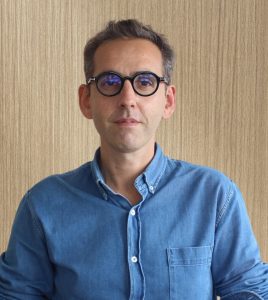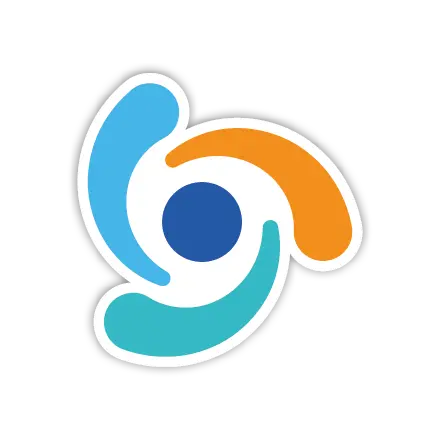Doctor Jean-Sébastien Frenel, an oncologist at the Institut de Cancérologie de l’Ouest, has benefited from “protected medical time” since 1 November 2021, to enable him to coordinate research work, but also to get closer to researchers.
Protected medical time: Financial support system that allows a health professional to participate in research projects in parallel with his clinical activity.

Who are you and what is your research within SIRIC ILIAD?
I am Jean-Sébastien Frenel, medical oncologist at the Institut de Cancérologie de l’Ouest and researcher in team 7 of the CRCI²NA directed by Philippe Juin. I am also attached to the PISTER programme of the SIRIC ILIAD dedicated to cellular oncology, where my research focuses on two themes. The first is the study of circulating cancer biomarkers, which aims to detect and characterise solid tumours from blood. My second research theme focuses on epigenetics, i.e. the study of mechanisms that can be acquired by cancer cells over time and with treatment.
The objective is twofold: to understand the mechanisms of resistance to treatment and to develop epigenetic therapies to overcome this resistance. We are currently carrying out this research on brain tumours, gynaecological cancers and breast cancer. From a clinical point of view, the potential application would be to intervene even before the appearance of resistance, by implementing a complementary therapy.
Epigenetics: A branch of genetics that studies environmentally induced variations in gene activity that do not involve changes in the DNA sequence and can be transmitted during cell division.
Why did you choose these research topics?
Ten years ago, as a young doctor, I moved to the UK as part of my training. There I joined the Institute of Cancer Research and the Royal Marsden Hospital where I acquired knowledge and skills in circulating biomarker analysis. On my return to France, when I joined the Institut de cancérologie de l’Ouest (ICO), I met Pierre-François Cartron, a researcher specialising in epigenetics, with whom I have been collaborating ever since. I then extended my collaborations with other researchers, Julie Gavard and Sophie Barillé-Nion, on circulating biomarkers.
What do you like about these topics?
In solid cancers, access to the tumor can be difficult and it is sometimes hard to take a sample of the tumor. In some cases, a biopsy from a few years ago is used as a basis, for lack of anything better, although it is likely to have progressed over time. The thing I like about circulating biomarkers is that they can provide real-time information and characteristics of the tumour. There is no need for a biopsy, just a blood test.
Biopsy : The removal of a fragment of tissue or organ for examination.
Why did you apply for “protected medical time” ?
« For the scientific coordination of a breast cancer cohort: EPICURE »
The first reason why I asked for protected medical time was to coordinate a cohort on metastatic breast cancer, the EPICURE cohort. It collects a lot of clinical, biological and molecular data throughout the treatment process. More than 100 patients participated, and thanks to them, there is a lot of information available. The important thing now is to coordinate medical information with the results of scientific work as well as possible, to optimise the work of each person and to accelerate the publication process and scientific interactions with the EPICURE teams.
Cohort : A group of individuals who share a common characteristic that lends itself to statistical study.
« To put yourself in the shoes of researchers and vice versa »
The second reason why I decided to spend more time in the laboratory was to interact with the scientific teams, to put myself in the shoes of the researchers and vice versa. I was already doing research, but my presence two days a week in the INSERM research laboratories allows me to get closer to the researchers and to strengthen my collaborations with them.
Since November 2021 and for a period of one year, 40% of my time is dedicated to research, which has required a reduction and reorganisation of my clinical activity. And it is precisely this clinical perspective that I bring to the research teams. Researchers work on samples or raw data, isolated from the medical data but especially from the associated clinical understanding. For example, the research teams do not know how a cancer patient feels, how he or she is doing in practice. This protected medical time supported by the SIRIC allows me to make the link between the clinic and the research laboratories, to answer the medical questions of the teams, so that the samples on which they work and the results obtained are linked to the medical reality of the patients.

